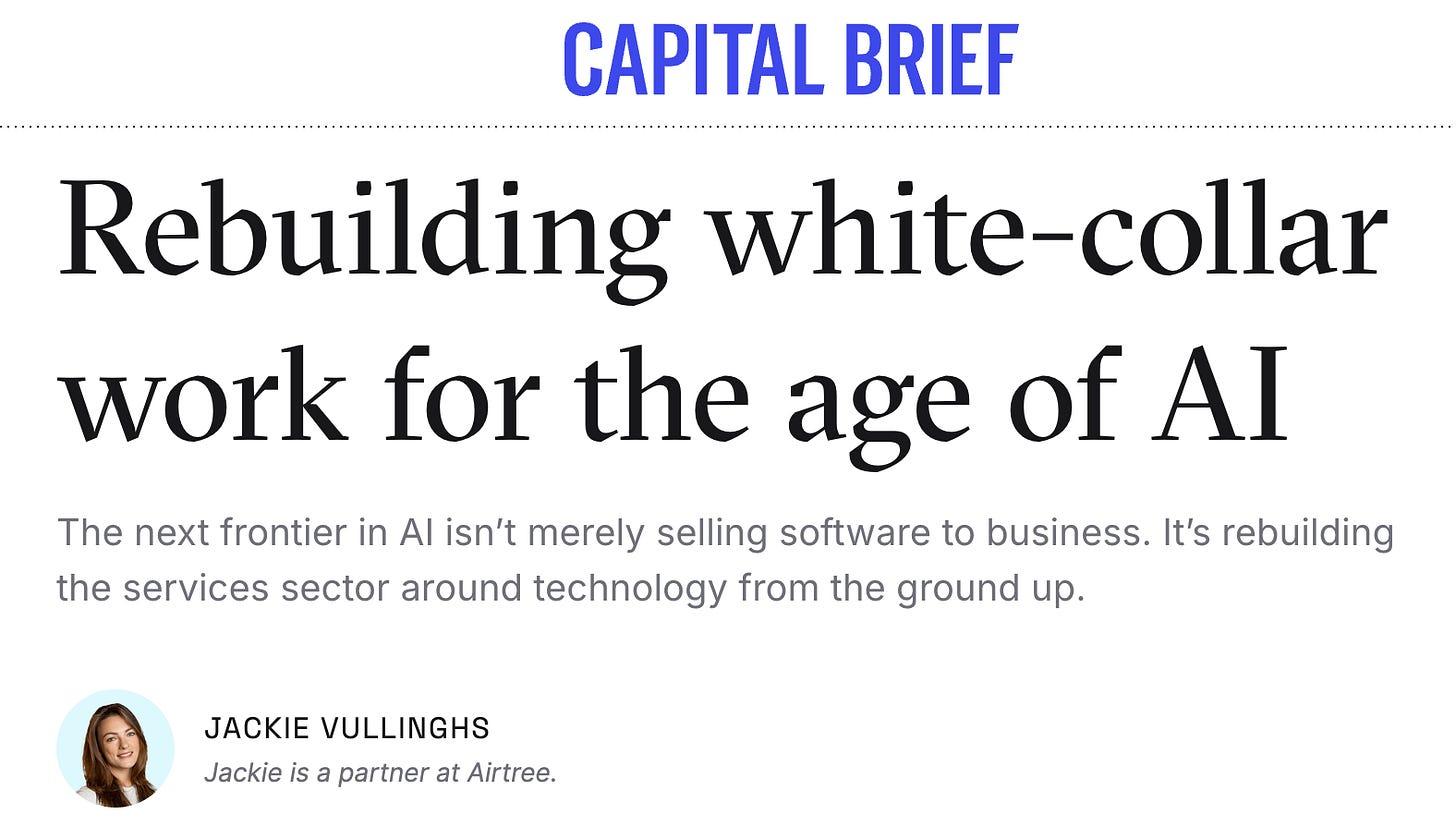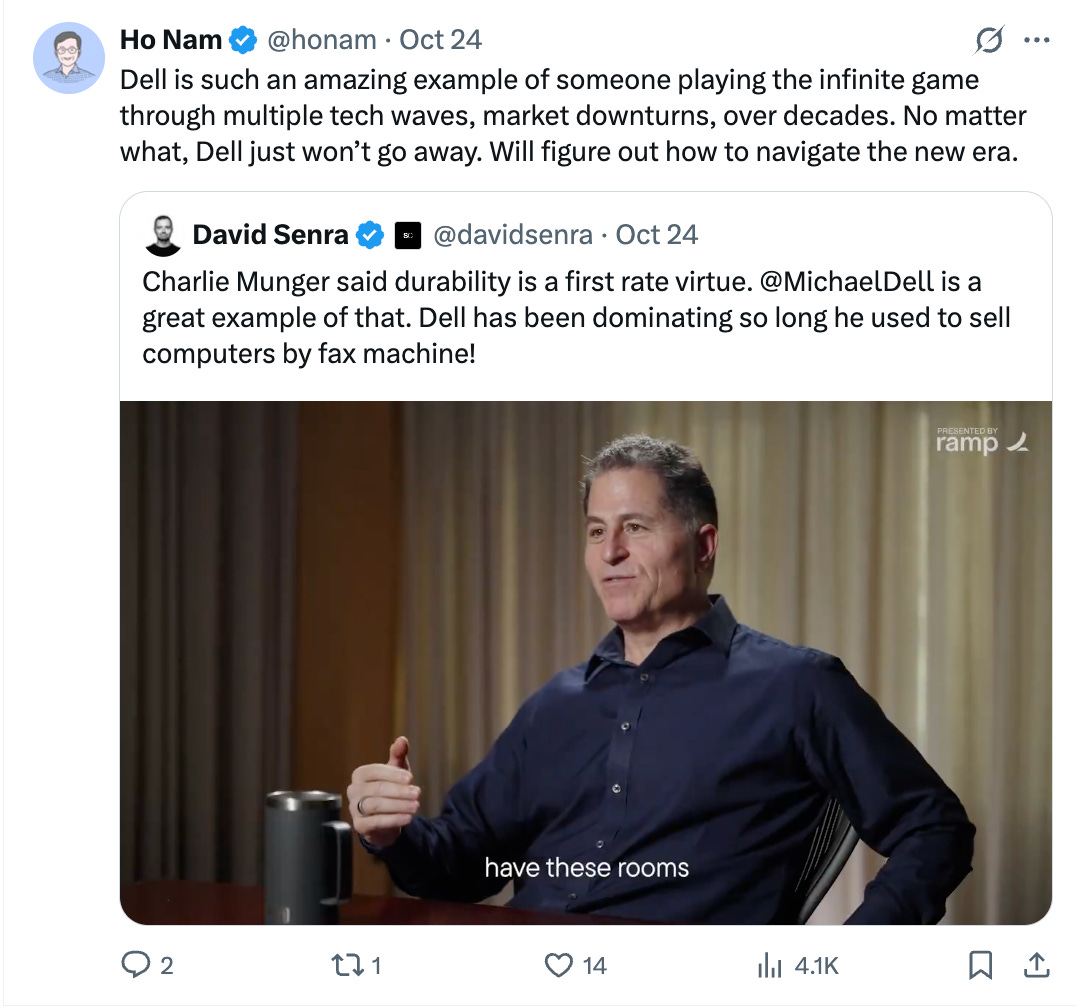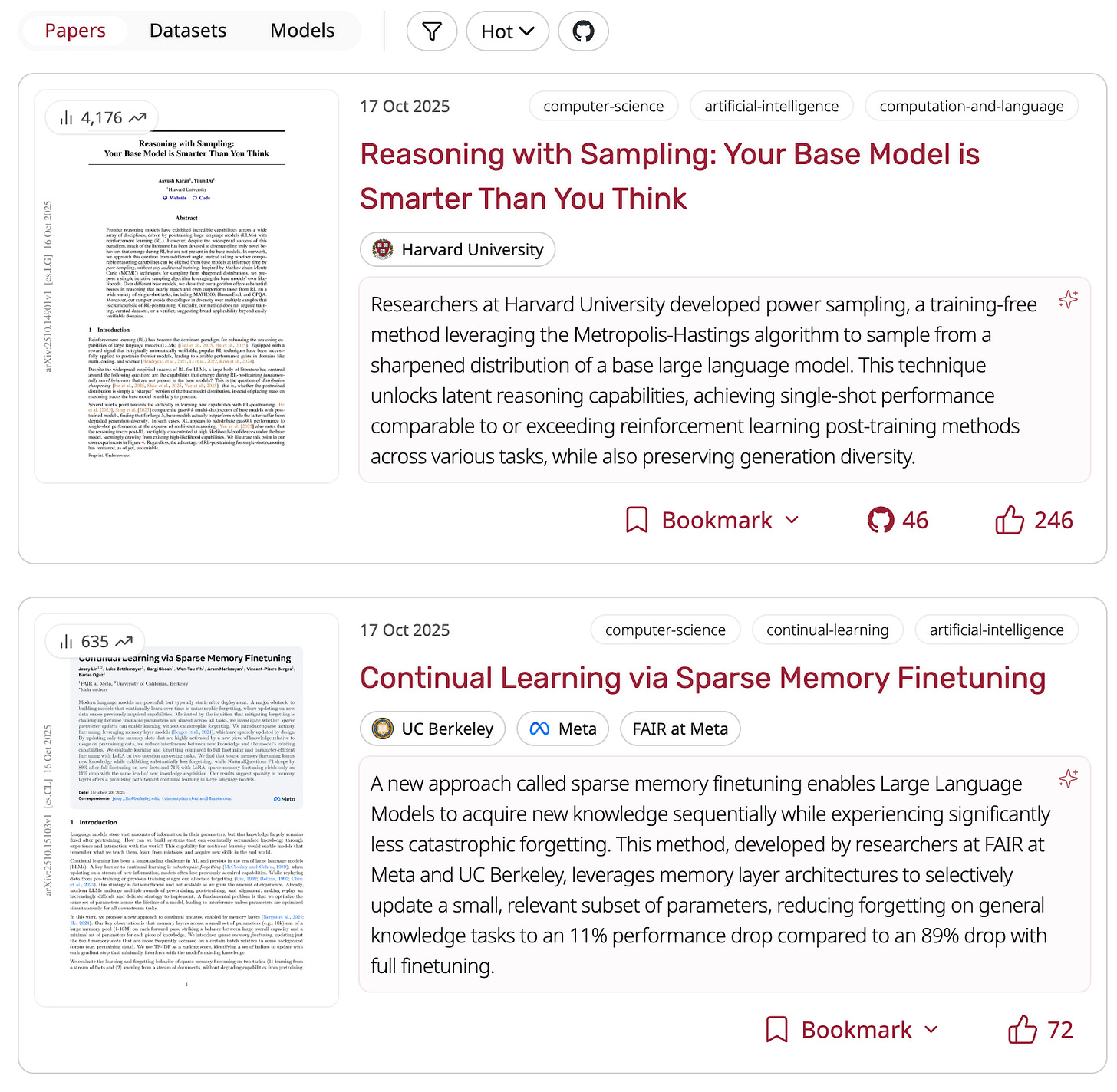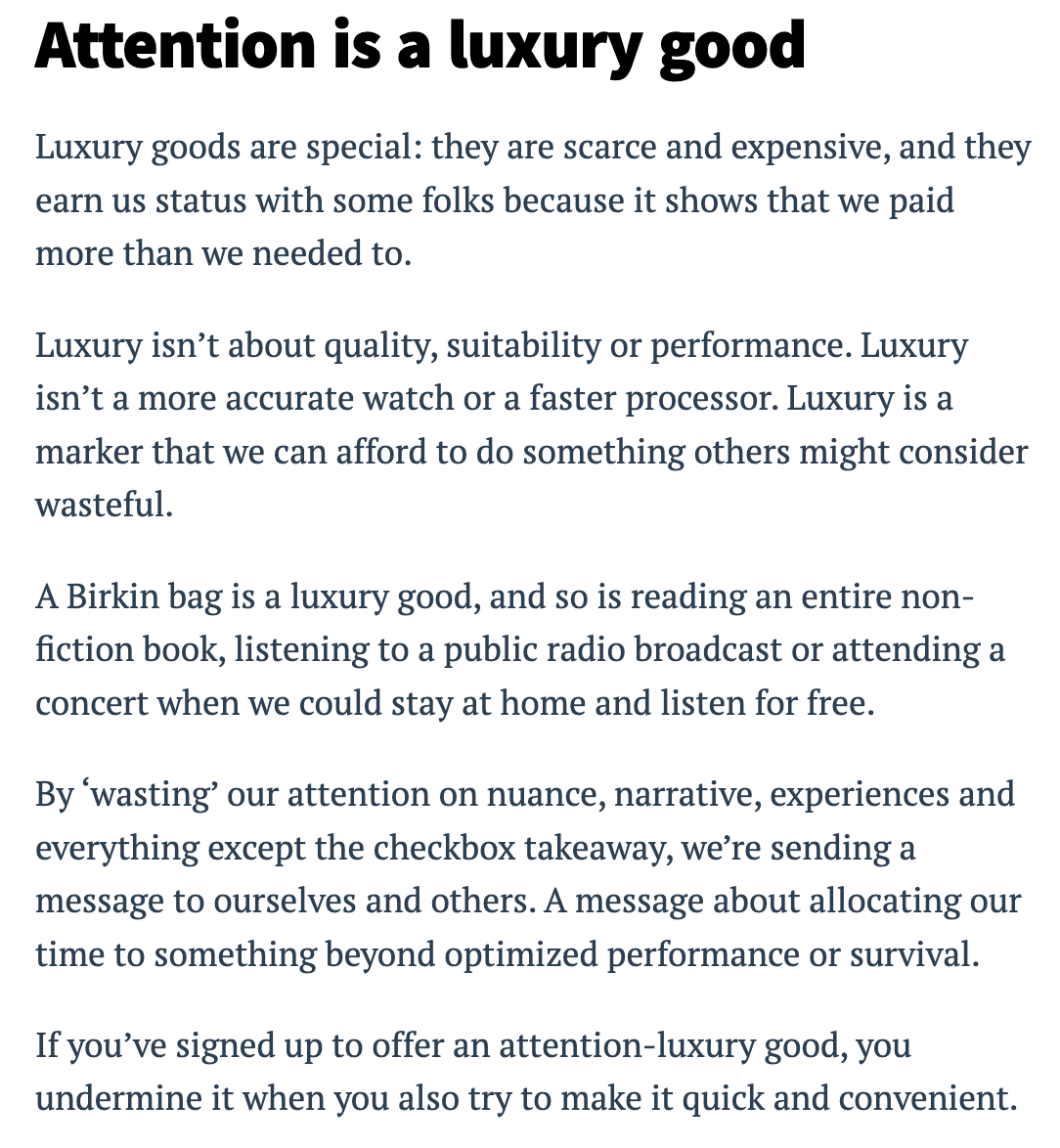Rebuilding white-collar work for the age of AI
Reimagining services businesses in every sector with software
I wrote an op-ed in Capital Brief on why Airtree is excited about AI-native services firms. It talks about the productivity crisis; why AI allows a fundamental reimagining of customer experience, making expert knowledge accessible to everyone; the path to venture scale returns; and the types of sectors and workflows we’re looking to invest in. More here:
The resurgence of Oracle and Dell in the AI infra buildout exemplifies why founder-led businesses outperform. Two of the OG founders saw a big opportunity and went all in after decades in business:
For the non-technical folks who still want to understand the latest research papers, I’m loving alphaXiv:
I keep coming back to the idea that the growth of podcasts signals a return to an oral culture—and that this shift is reshaping which stories resonate most. In contrast to radio’s broad reach, podcasts splinter audiences into niches, each immersed in emotionally resonant soundbites crafted for them.
I recently read “Orality and Literacy” by Walter Ong, which describes the impact of society moving from a primarily oral culture to a literate culture. It was published in 1982, so decades before podcasts became popular; however, he talks to radio and TV as creating an age of “secondary orality”. More below:
“electronic technology has brought us into the age of ‘secondary orality’. This new orality has striking resemblances to the old in its participatory mystique, its fostering of a communal sense, its concentration on the present moment, and even its use of formulas. But it is essentially a more deliberate and selfconscious orality, based permanently on the use of writing and print, which are essential for the manufacture and operation of the equipment and for its use as well. Secondary orality is both remarkably like and remarkably unlike primary orality. Like primary orality, secondary orality has generated a strong group sense, for listening to spoken words forms hearers into a group, a true audience, just as reading written or printed texts turns individuals in on themselves. But secondary orality generates a sense for groups immeasurably larger than those of primary oral culture—McLuhan’s ‘global village’. Moreover, before writing, oral folk were group-minded because no feasible alternative had presented itself In our age of secondary orality, we are groupminded self-consciously and programmatically. The individual feels that he or she, as an individual, must be socially sensitive.”
Dwarkesh’s 4-hour podcasts and Packy McCormick’s 40k-word epic posts are “luxury goods” for the information economy, capturing our most valuable commodity, attention.
See Seth Godin below:
Talking about Packy’s posts, I’ve had his opus on electrification bookmarked for weeks, but whoever sits down to read 40k words?! Instead, I’ve loaded up Eleven Reader and have been listening to the whole post (4hrs listening) while washing, ironing, and commuting all week:
Love this marketing - b2b SaaS for finance teams lighting up X by taking advantage of a cultural moment (everyone talking about negative gross margins) to announce their latest fundraise. Look down the whole thread:
This:
Tracks
Bonobo live at Cercle:
My Music League is ending this week and my friends posted some great tracks in the final playlist:








Love this! Great ideas to get the brain moving on a Friday morning 😄🧠.